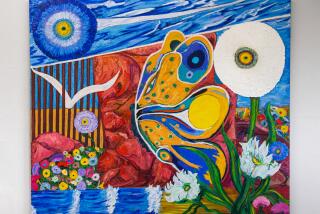Transistor Windows
Sitting by kitchen window gazing over Hopi village of Shungopavi, named after a spring where reeded-plants grow and watching autumn skies light up with orange as the September sun sinks into the deep abyss of the mighty Grand Canyon. The blue of evening creeps over the mesas and apartment dwellings of the Hopi as children play and shout in the cool of purple dusk. To the east, Mishongnovi and Walpi light up and twinkle as Shungopavi quiets down for evening supper. Inside mother’s house, once my nest, beans boiled for supper and green chili burned and smothered us with choking smoke, as we all laughed with tears in our eyes. Relaxing, we turn to watch the world through television windows; seeing bloated black children starve in Africa; Arabs and Jewish people hunting each other on barren deserts with devastating arsenals as lovely young American maidens sell us the stunned viewer on the secrets of youth, as my aging mother and aunt chuckle and crack Hopi jokes. Outside, kachina cloud-priests have gathered over the Hopi mesas, lighting the skies with bright lightning and crashing thunder that a deaf-mute German caught so well in his sonatas. Caught between the two windows, I pondered the confusions and hunger of the modern transistor Hopi.
From “Migration Tears: Poems About Transitions” (UCLA American Indian Studies Center: $10, paper; 54 pp.). In an introduction, editor Kenneth Lincoln writes: “Mike Kabotie or Lomawywesa, son of the artist Fred Kabotie, was born in 1942 at Shungopavi. The Hopi Sinum or ‘peaceful people’ number about 6,500 and live as they have for centuries on three mesas north of Flagstaff. Mike is of the Snow/Water clan, and he is well known as a painter, lithographer, serigrapher, goldsmith and silversmith. In Migration Tears he re-creates Hopi traditions for modern Indians in three senses. First, he nurtures what is and has always been native. . . . Second, he thoroughly enjoys the play of his arts, the humor and humanity in his ‘re-creation’. . . . Third, Mike Kabotie remains his own re-creant wit with trickster twists. . . .”
Are you a real Indian? he asked
‘No’ I replied, ‘I’m a Hopi; real
Indians live in India.’
A whirlwind smile and
into the tornado again
More to Read
Sign up for The Wild
We’ll help you find the best places to hike, bike and run, as well as the perfect silent spots for meditation and yoga.
You may occasionally receive promotional content from the Los Angeles Times.





